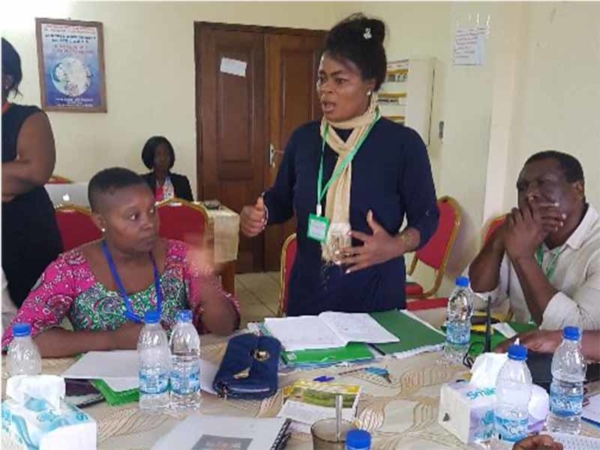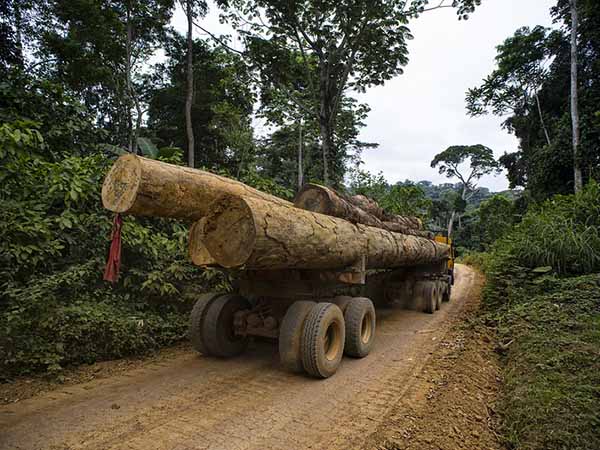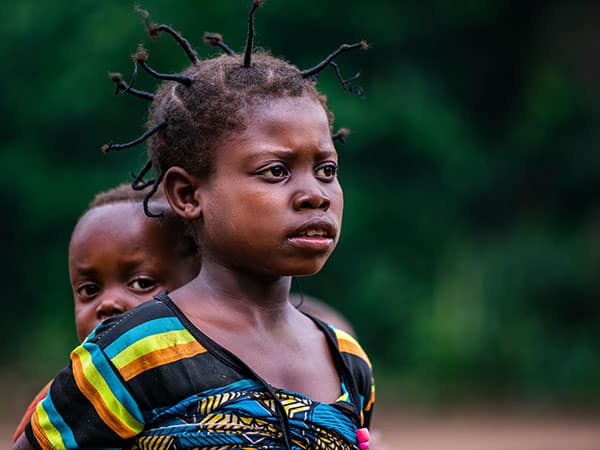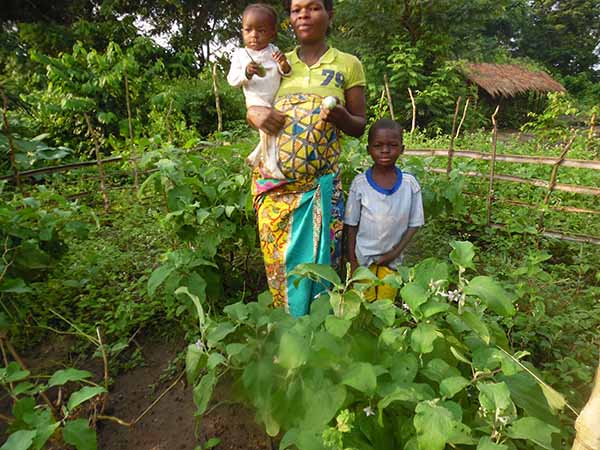
Congo Basin
Resist
Synchronicity Earth aims to empower civil society to resist and reduce threats to ecosystems and biodiversity from destructive developments. As an urgent priority, we provide critical support to organisations challenging destructive land grabs for industrial agriculture, mining, logging and hydropower in landscapes of high ecological integrity.
As extractive companies and their staff move into new forest areas, social norms, such as taboos against hunting of particular species, can be degraded and existing hunting pressures and demand for other forest products exacerbated, thus presenting serious threats to forest species, such as apes, antelopes, pangolins and certain species of birds, reptiles, and even amphibians.
Our programme aims to resist and reduce threats to forest ecosystems by:
Understanding current and emerging threats (e.g. roads, palm oil).
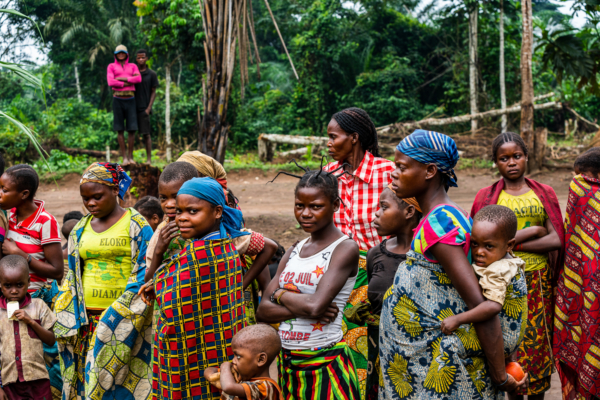
By researching and understanding current and emerging threats to biological and cultural diversity in the region, we are well placed to support work to expose the negative impacts of developments and to identify the best routes and strategies for challenging them.
Supporting advocacy to challenge particular companies, development agencies or governments.
Where opportunities are timely, we can support work to challenge the legality of concession contracts, or coordinate advocacy campaigns between groups across borders.
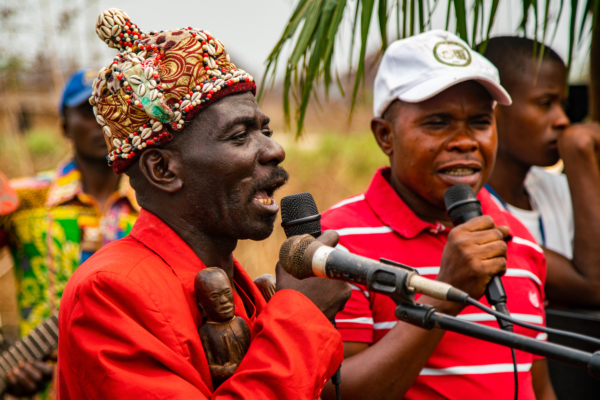
Building the conservation constituency by empowering communities.
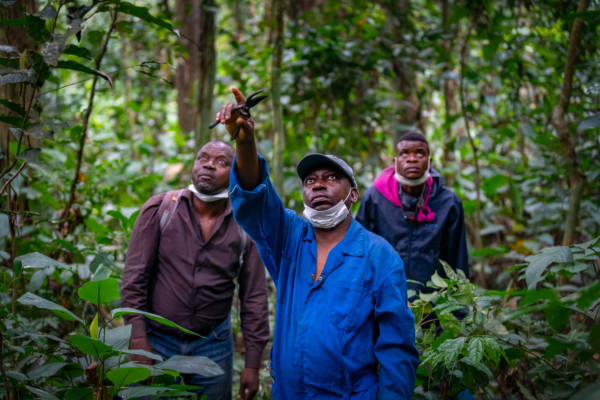
Communities are empowered when they are able to make informed decisions and have their voices heard about what happens on their land. We support partners who enable this by, for example, explaining contracts, providing legal support, setting up community exchanges and workshops.
* Images © Chris Scarffe
Over the last decade, West and Central African governments have granted land concessions totalling over 4 million hectares to foreign agricultural companies to produce oil palm mainly for export. As a result, a large-scale monoculture plantation model has been introduced on lands that traditionally belonged to peasant farmer and forest communities, most often without meaningful consent.
‘Informal Alliance Against the Expansion of Industrial Palm Oil in West and Central Africa’
Through grants to partners GRAIN and Struggle to Economize Future Environment (SEFE) we support an initiative which brings together palm oil affected communities and civil society groups from across West and Central Africa to build a stronger movement to resist the expansion of industrial palm oil in the region. This movement calls itself the “Informal Alliance Against the Expansion of Industrial Palm Oil in West and Central Africa”.
Some of our support contributed to a gathering of this alliance in May 2019 in Abidjan, Côte d’Ivoire. Over 30 alliance members from 11 countries came together and shared experiences of expansion of industrial oil palm on their lands and discussed how they might continue to work together to challenge such developments. Testimonies from oil palm-affected communities painted a bleak picture, but the evaluation of the alliance by its members was encouraging: the alliance has provided prompt support when needed and has helped build solidarity and trust between its members, supporting leaders, and in particular women, to be more confident in their struggles against industrial oil palm.
Our research shows that philanthropic funding for mainland African forests is much lower than it is for forest protection in Latin America and Southeast Asia; the current funding response has been insufficient to address needs.

